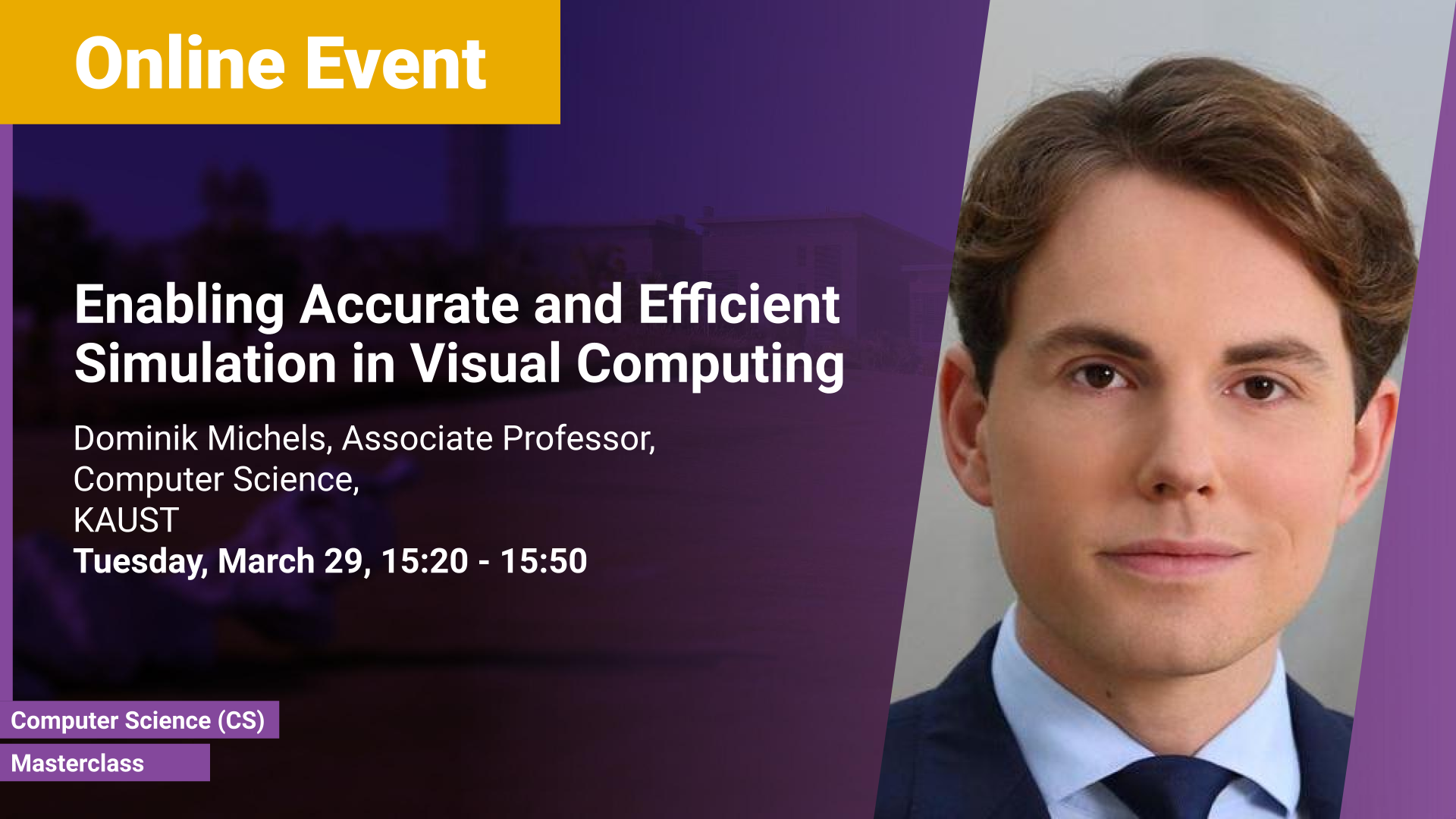Masterclass in Visual Computing
Abstract
The overarching goal of Dominik Michels' Computational Sciences Group within KAUST's Visual Computing Center is enabling accurate and efficient simulations for applications in Scientific and Visual Computing. Towards this goal, the group develops new principled computational methods based on solid theoretical foundations. This talk covers a selection of previous and current work presenting a broad spectrum of research highlights ranging from simulating stiff phenomena such as the dynamics of fibers and textiles, over liquids containing magnetic particles, to the development of complex ecosystems and weather phenomena. Moreover, connection points to the growing field of machine learning are addressed and an outlook is provided with respect to selected technology transfer activities.
Brief Biography
Dominik L. Michels' research aims for the development of principled computational methods targeting simulation tasks in the fields of Visual and Scientific Computing. This is based on solid theoretical foundations resulting from fundamental research comprising Algorithmics, Artificial Intelligence, Computer Algebra, Machine Learning, Mathematical Modeling, and Numerical Analysis. Since summer 2016, he is heading the Computational Sciences Group within KAUST's Visual Computer Center. Previously, he joined Stanford University in fall 2014 heading the High Fidelity Algorithmics Group within the Max Planck Center for Visual Computing and Communication. Prior to this, he did postdoctoral studies in Computing and Mathematical Sciences at Caltech in the spring and summer of 2014. He studied Computer Science and Physics at the University of Bonn and B-IT, from where he received a B.Sc. in Computer Science and Physics in 2011, an M.Sc. in Computer Science in 2013, and a Ph.D. in Mathematics and Natural Sciences on Stiff Cauchy Problems in Scientific Computing in early 2014. During his academic studies he was visiting several international institutions, among others Harvard University, the Massachusetts Institute of Technology, NASA's Jet Propulsion Laboratory, and the Joint Institute for Nuclear Research in Dubna, Moscow. His studies and research were awarded and supported with various honors, for example by the German Academic Scholarship Foundation, with a Johannes Kepler Foundation Scholarship awarded for excellent achievements in algorithmics and geometry, by the ACM SIGSAM for achievements in computer algebra, and with the academic award of the AFCEA. In the non-academic context, he serves as a research partner in the sections of high-technology and consumer goods partnering with and advising leading multinational companies and research institutions from various sectors, specifically from the high-technology and consumer goods sections. In this context, he received the first Procter & Gamble Faculty Award for his research contributions to the consumer goods industry. He is a member of the ACM and the IEEE, the London Mathematical Society, and the AGYA project at the Berlin-Brandenburg Academy of Sciences and Humanities. He was selected as a member of the top-class jury for the German AI Award, and was awarded an Artificial Intelligence Grant of the German State of North Rhine-Westphalia as part of its Academic Expat Program endowed with 1.25 million euros.
